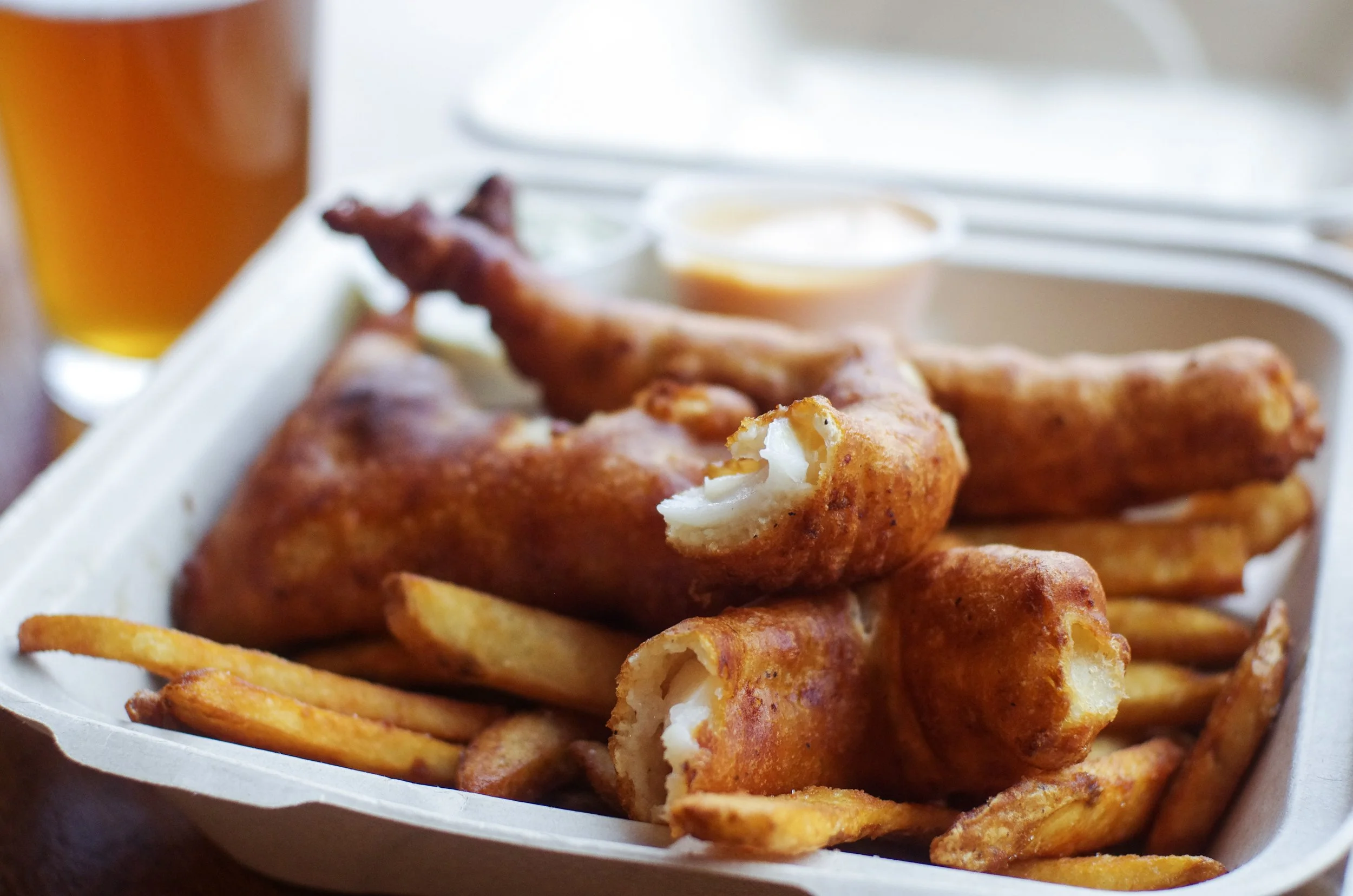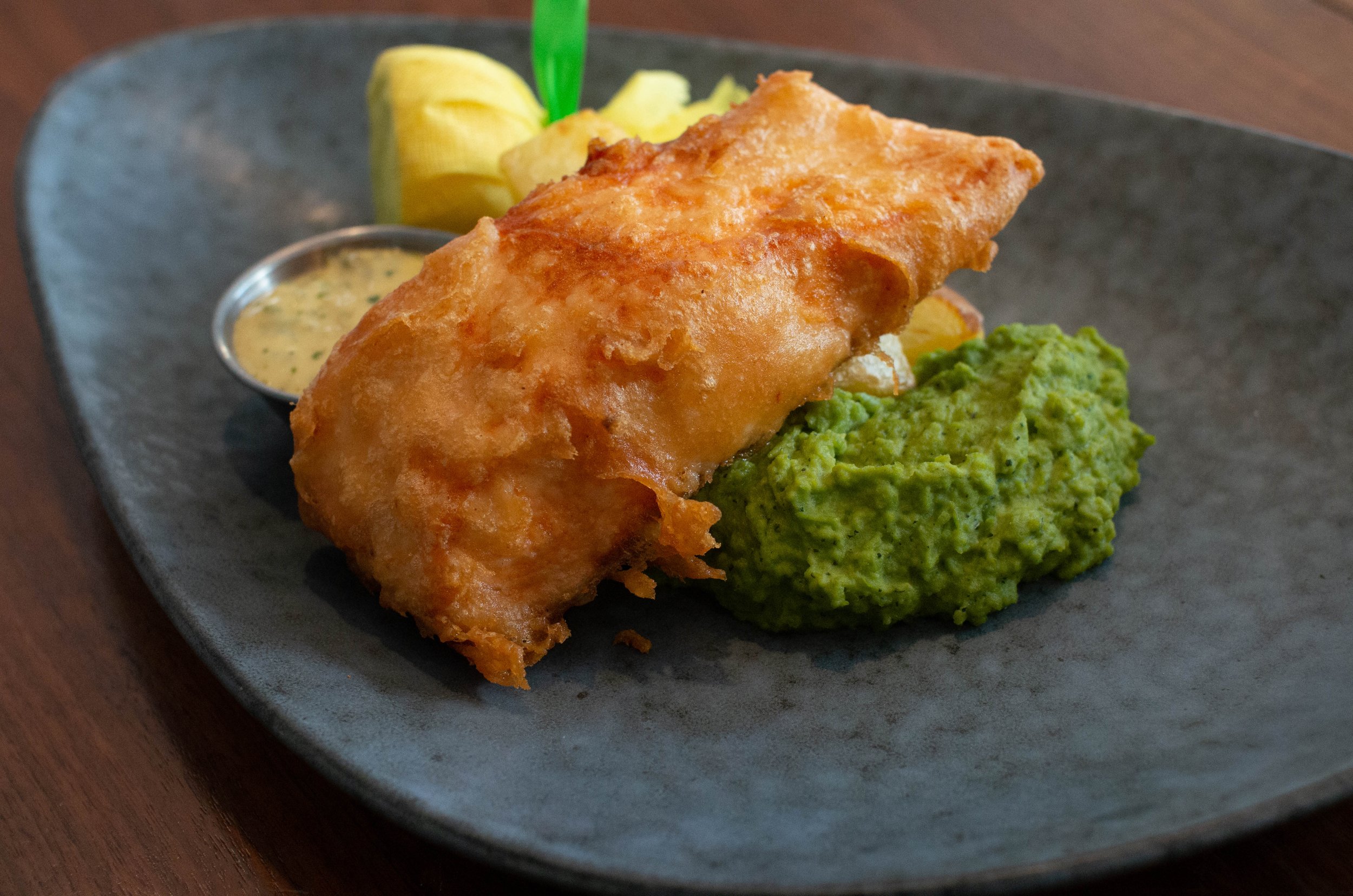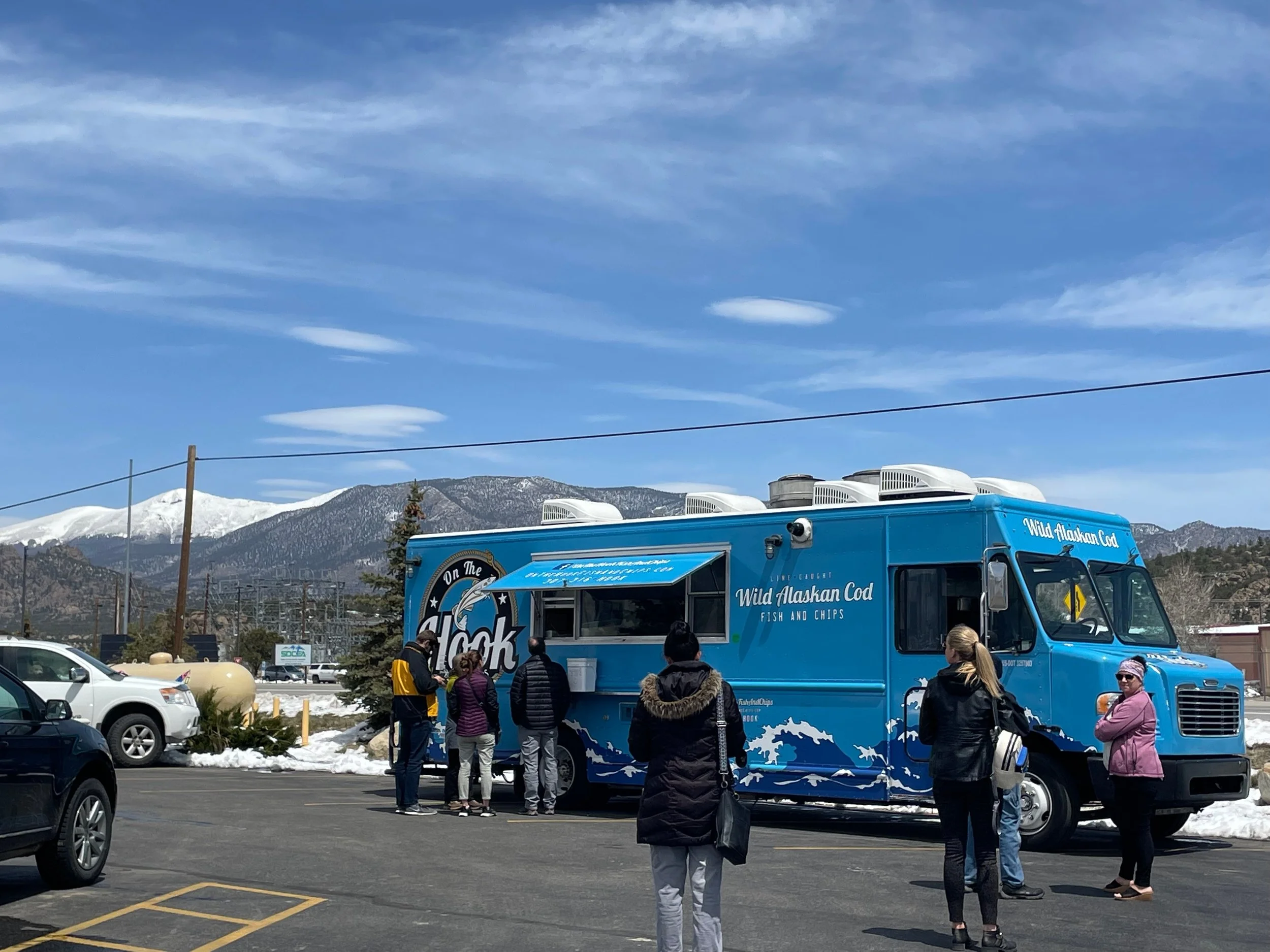The classic fish and chips combination is a story of necessity and resilience. Here’s where to get some of the best in Greeley.
Chewy, slightly sweet batter encloses steaming, flaky, line-caught Alaskan cod. Photo by Emily Kemme.
By Emily Kemme
Fish filets pulled steaming hot from a fryer as the sturdy batter binds delicate chunks of tender cod together is an undeniable comfort food. Pair it with crisped fries, a dish of pickle-spiked tartar sauce for dipping and a cold beer and some might call it nirvana.
While you can find this classic meal by following your nose all over the U.K., its historical origins aren’t as British as you might expect.
Although the British claim this iconic dish as their own, it wasn’t until 2015 when the National Edible Oil Distributors Association launched the holiday to promote this oil-soaked meal.
Even then, there have been discrepancies as to when the holiday is to be held. Slated for the first Friday in June since its inception seven years ago, the 2022 celebration was bumped one week, taking place instead on Friday, May 27.
Pardon the confusion. It’s possible that, given the NEODA’s uncontainable enthusiasm for promoting fish and chips, they couldn’t wait until June to celebrate.
Timing aside, thanks to the holiday’s existence, restaurateurs and historians began a deep dive into how the dish got its start.
Sometimes, when you cast a line to gather information, you catch a fish of an entirely different sort.
The concept of battered and fried fish comes from Portuguese Jews who emigrated to Europe and Britain after the Spanish Inquisition outlawed the practice of their religion. Since Jews are prohibited from cooking on their Sabbath — from sundown on Friday night through sundown on Saturday — they customarily prepared food that could last (unrefrigerated) for 24 hours. Fish fried in a coating of flour or matzo meal is an archaic preservation method: heat destroys microorganisms and enzymes and reduces the amount of surface moisture on foods where bacteria is likely to grow.
Frying isn’t the safest preservation method, but it worked well enough before refrigeration.
Wild Alaskan cod is ale-battered, fried and served with sea salted fries, minted peas and a side of sriracha tartar at Meeker’s, a Colorado Kitchen & Bar in downtown Greeley. Photo by Emily Kemme.
By the late 1700s, battered and fried fish was available for purchase from London street cart vendors; the first fish and chips shops, today called “chippies,” were mentioned by Charles Dickens between 1837-1839 in his serial, Oliver Twist, as a “fried fish warehouse.”
Fried potatoes didn’t originate in Britain, either.
Chips, or the American french fry, were similarly a product of necessity and resilience: it’s said they were invented in the 1680s to substitute for fish when rivers in Belgium’s Meuse Valley froze during the winter and no fish could be caught. Instead, inventive mothers cut potatoes into fish shapes and fried them to feed their families.
The idea made its way to Britain from Europe, with the first record of the word “chip” again noted by Dickens, this time in 1859 in his novel, A Tale of Two Cities.
The partnership of these two foods has worked their way into the British identity; they’ve been inseparable for nearly 200 years. The dish was so popular that Winston Churchill decided not to ration it during WWII in the interest of brightening moods.
The story of fish and chips is one of innovation and resilience. That’s something worth celebrating, whether it takes place on the first Friday in June, or every Friday.
Find Fish and Chips around Greeley
Since its beginnings in 2016 in Laramie, Wyoming, On The Hook Fish And Chips food truck has attracted followers far and wide. Folks track the company’s 15 trucks as they make the rounds across 16 states, covering a stretch of road from Idaho to Mississippi. Currently, nine of the trucks are in rotation, the company said.
Fish and chip lovers catch up with an On The Hook Fish and Chips food truck in Buena Vista, Colo. Photo courtesy of Twyla Surritte.
The food truck was the brainchild of founding partners Hunter Andersen and Ocean Andrew when they were students at the University of Wyoming. The pair teamed up to find a way to offload over 1200 pounds of fresh, line-caught, flash-frozen cod shipped by Andrew’s father every ten days from Alaska.
The senior Andrew captains the fishing boat Northern Leader, and pulls wild cod out of the cold waters of the Bering Sea in Dutch Harbor.
The cod is beer-battered after it’s ordered and then goes straight into the food truck fryer. The method guarantees steaming, flaky fish with fresh-caught tenderness; it’s served with house made tartar sauce, sriracha mayo and fries.
The trucks have a rotating schedule and park at breweries, shopping centers, banks, libraries and more. To find out when a truck will be near you, visit the website or follow On The Hook on Facebook.
If you’re looking for a more stationary location to find fish and chips, head to Meeker’s, A Colorado Kitchen & Bar, 919 7th St., inside the DoubleTree by Hilton hotel in downtown Greeley. Chef Ron Jackson is well-versed in the art of deep-fried fish, after spending years working in the U.K. as executive chef. Jackson cooks up wild Alaskan cod: the fish is ale battered, fried and served with sea salted fries, minted peas and a side of sriracha tartar.



